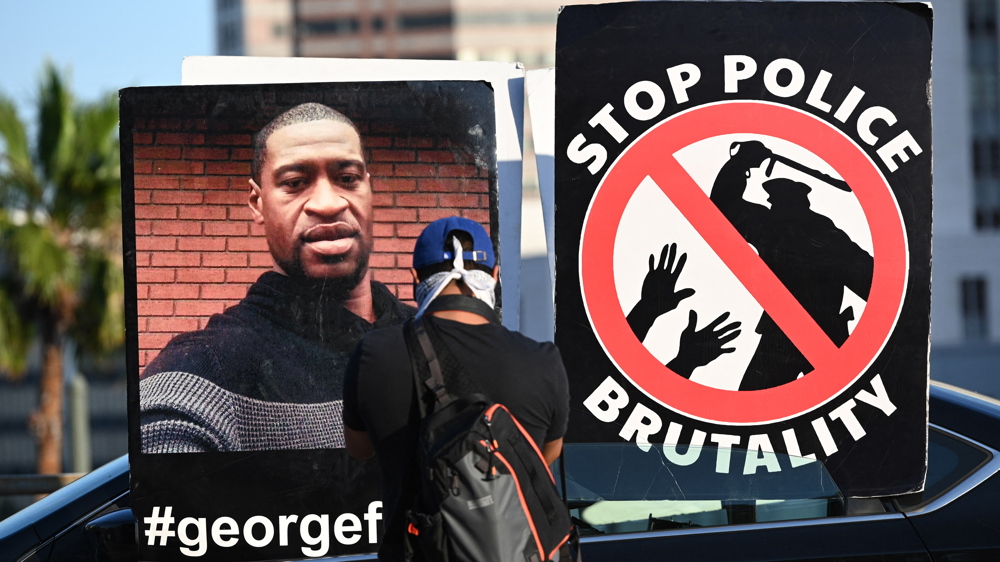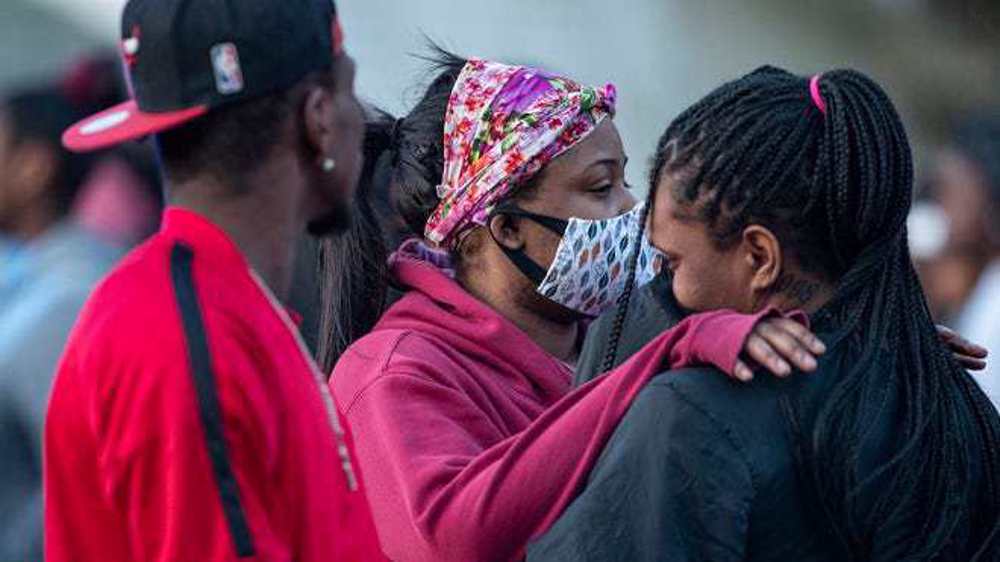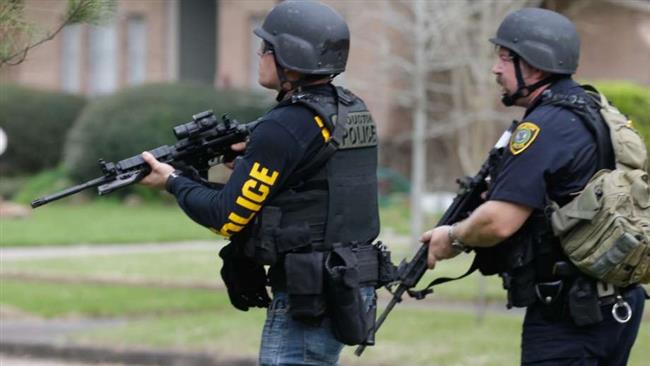US House passes police reform amid uncertainty at Senate ahead of Floyd murder trial
The US House of Representatives has passed a longstanding police reform bill that bans controversial law enforcement tactics, including choke holds and combats racial profiling, just ahead of the trial of a white police officer charged with murdering African-American George Floy last year.
The reform bill, named after Floyd — “George Floyd Justice in Policing Act” — passed by a vote of 220-212, with the support of only one Republican on Wednesday.
Soon after the vote, the Republican representative, Lance Gooden, who voted “yes” wrote in a tweet that he had pressed the wrong button and had meant to vote “no.”
He said he opposes the bill and would submit a correction to his vote.
The bill cleared the House last year but was blocked in the Republican-led Senate. It was reintroduced last week and now heads to the Senate.
But the fate of the legistlation is uncertain in the Senate as the chamber evenly divided between Democrats and Republicans.
“Nearly one year ago, George Floyd gasped his last words, 'I can't breathe,' and ignited a nationwide reckoning on the racial injustice and police brutality in America,” House Speaker Nancy Pelosi said before the vote.
Floyd, 46, died in May, last year, in the northern US city of Minneapolis, Minnesota, after white police officer Derek Chauvin pressed his knee on his neck for over nearly nine minutes, as he continually gasped, “please, I can’t breathe.”
Floyd’s tragic death was caught on video and sparked mass protests and clashes with police in many cities across the county ahead of the US 2020 presidential election.
Pelosi acknowledged that the new bill “will not erase centuries of systemic racism and excessive policing in America.”
But she expressed hope that it takes a "tremendous step" toward stopping the violence and improving relations between law enforcement and people.
The legislation includes measures such as restricting certain funds to local governments that allow law enforcement officers to use choke holds.
It is expected to ban choke holds and no-knock warrants, combat racial profiling, limit the transfer of military equipment to local police forces, expand police training, and establish a database to track officer misconduct.
President Joe Biden told Democrats on Wednesday that he "strongly" supports the full bill.
Floyd’s family praised the bill's House passage in a statement from their lawyers Ben Crump and Antonio Romanucci.
“This represents a major step forward to reform the relationship between police officers and communities of color,” said the attorneys.
Republicans, however, attacked the bill, saying that it would strip police forces of funding and make communities less safe.
House Republican Debbie Lesko said that the bill "leaves police unequipped to deal with dangerous or life-threatening situations and limits the tools that police can use in the field."
The US has a history of racial discrimination against people of color, but the brutal killing of Floyds reignited deep-rooted indignation over the country’s police brutality toward African-Americans and revived the Black Lives Matter movement, not in the US alone but in a global scale.
Across the US, African-Americans have always lived in fear of police officials that closely monitor their every behavior, attack them on the street and in their homes, and kill them for the slightest alleged provocation.
The trend of US police killings of minorities, however, seems to only be increasing, with 16 Black Americans having been shot to death in the first two months of this year.
‘All wars have rules. All of those rules have been broken’ by Israel
VIDEO | Report flags India’s violation of rights of Rohingya detainees
Turkey's foreign minister meets Syria's de facto leader in Damascus
'Next to impossible' to rescue patients from Gaza's Kamal Adwan Hospital: Director
VIDEO | Vietnam current prosperity
Report blames gasoil exports for shortage at Iranian power plants
VIDEO | Hind Rajab Foundation names Israeli war criminals vacationing after Gaza genocide
VIDEO | Australians rally for Gaza ahead of Christmas festivities













 This makes it easy to access the Press TV website
This makes it easy to access the Press TV website